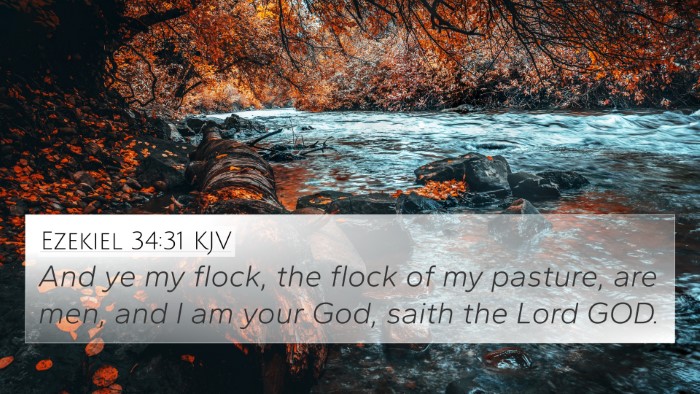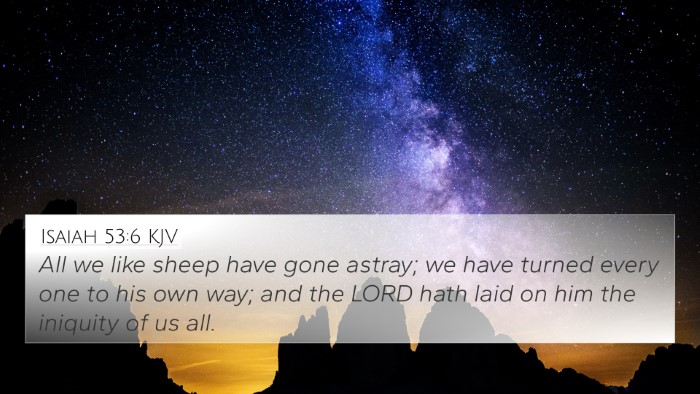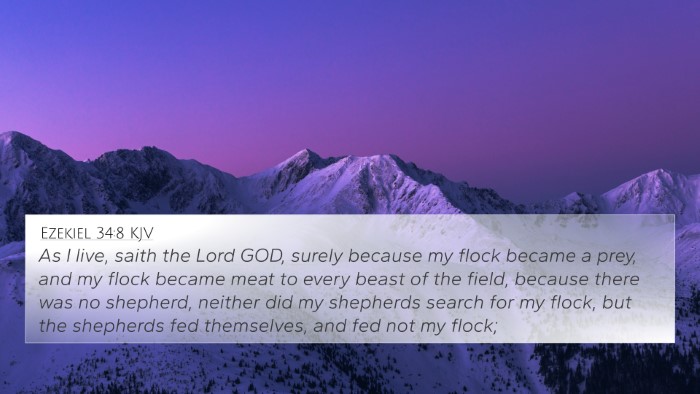Understanding Luke 15:4
Bible Verse: Luke 15:4 - "What man of you, having a hundred sheep, if he lose one of them, doth not leave the ninety and nine in the wilderness, and go after that which is lost, until he find it?"
This verse is part of the parable of the lost sheep, illustrating God's deep love and concern for each individual. The imagery of the shepherd seeking the lost sheep symbolizes God’s tireless effort to bring back those who have strayed from Him.
Verse Meaning and Insights
In exploring the meaning of this verse, we can draw upon insights from notable public domain commentaries:
- Matthew Henry: He emphasizes the shepherd's love and commitment to each sheep, suggesting that the focus is on the individual rather than the collective. The act of leaving the ninety-nine conveys a profound message about God’s grace, showing that every soul is precious in His sight.
- Albert Barnes: Barnes highlights the emotional and physical labor of the shepherd. The wilderness represents a place of danger for the sheep, reinforcing the idea that the journey to recover a lost soul often involves risk and sacrifice. God's pursuit of humans showcases His unyielding desire for reconciliation.
- Adam Clarke: Clarke points to the cultural context wherein sheep were highly valued. The mention of 'one' sheep being lost serves to illustrate that every person matters to God, emphasizing the personal nature of salvation and divine attention to the details of our lives.
Cross-References for Luke 15:4
This verse can be effectively analyzed through the lens of various related scripture passages. Here are 10 relevant cross-references:
- Matthew 18:12-14: This parallel verse presents a similar theme of the lost sheep, reinforcing the message of divine pursuit and care.
- John 10:11: In this passage, Jesus identifies Himself as the Good Shepherd, who cares for His sheep, further emphasizing the shepherd's role in seeking the lost.
- Ezekiel 34:11-12: This Old Testament reference speaks to God’s promise to seek out His sheep, showcasing the continuity of this message throughout Scripture.
- Isaiah 53:6: This verse points to humanity's collective waywardness, underscoring the need for a shepherd to bring us back to righteousness.
- Luke 19:10: Here, Jesus states His mission: to seek and save the lost, aligning with the themes presented in the parable of the lost sheep.
- 1 Peter 2:25: Peter discusses how Jesus is the shepherd of our souls, linking back to the shepherd motif in Luke 15:4.
- Psalm 23:1: This well-known Psalm portrays the Lord as our shepherd, which connects poignantly to Jesus’ role in seeking the lost.
- Hebrews 13:20: This verse describes Jesus as the great shepherd of the sheep, emphasizing His active role in guiding and restoring.
- Matthew 9:36: Here, Jesus shows compassion for the crowds, likening them to sheep without a shepherd, reflecting the necessity of His mission to seek the lost.
- Revelation 7:17: In a prophetic context, this verse assures believers that the Lamb (Jesus) will shepherd them, highlighting God's enduring care into eternity.
Connections Between Bible Verses
Understanding the connections between Bible verses enhances our comprehension of God's word. The themes of loss, search, and redemption recur throughout Scripture, providing a comprehensive view of God’s relentless love.
Thematic Bible Verse Connections
- Lost and Found: The primary theme of Luke 15:4 resonates with concepts like redemption and salvation, which are prevalent in both the Old and New Testaments.
- Divine Compassion: Scriptures that reflect God's mercy and grace, such as Psalm 103:14, which assures us of His understanding of our frailty.
- Joy Over Repentance: Tying Luke 15:4 to the joy in heaven that follows repentance (Luke 15:7), illustrates a divine celebratory response to recovering what was lost.
Engaging with themes and cross-references allows for a rich study of the Bible, revealing interconnected truths. Tools for Bible cross-referencing, such as a Strong’s Concordance, can greatly assist in identifying and exploring these connections.
Conclusion
Luke 15:4 encapsulates the essence of God's love for humanity, as depicted in the parable of the lost sheep. This narrative not only informs us of the tenacity of God’s pursuit but invites us to reflect on our response to being found. As we engage with cross-referencing Biblical texts, we open avenues for deeper understanding and appreciation of the Scriptures.


















